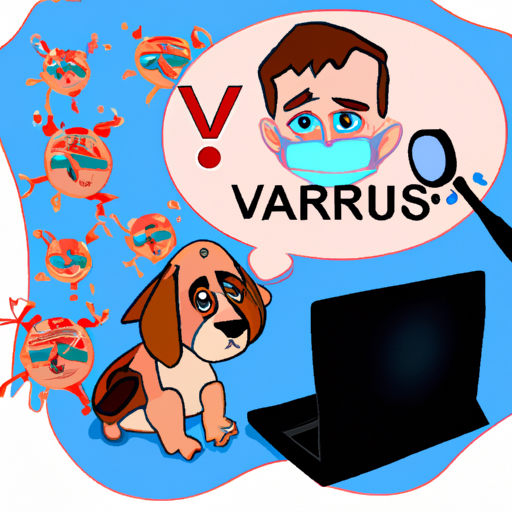As a loving caregiver, you are always on the lookout for the safety and health of your cherished canine companion. One disease that might have caught your attention is Canine Parvovirus, commonly known as Parvo. In this comprehensive guide, we’ll explore where dogs get this potentially lethal disease, and what you can do to protect your four-legged friend.
Understanding Parvo: What is it?
Parvo is a highly contagious virus that affects dogs, particularly puppies aged between six weeks and six months. It attacks a dog’s cells, particularly those in the intestinal tract, and can even damage the heart muscles in young puppies. The virus is tough, capable of surviving indoors for months, and outdoors for even longer if shielded from direct sunlight.
Where Dogs Can Contract Parvo
Parvo is primarily transmitted through direct contact with an infected dog, or indirectly, by the fecal-oral route. Below are some common places where your dog can potentially get infected:
-
Dog Parks: These are a common breeding ground for the Parvo virus. Infected dogs can easily spread the virus through their feces.
-
Kennels and Pet Stores: These places often house multiple dogs at a time. If an infected dog is present, the chances of the virus spreading are significantly high.
-
Vets and Animal Hospitals: Despite sterilization efforts, these places can occasionally become a source of Parvo because they see numerous sick pets on a daily basis.
Spotting Parvo: Symptoms and Signs
Early detection is crucial when dealing with Parvo. Keep an eye out for these symptoms:
- Loss of appetite
- Vomiting
- Severe, often bloody diarrhea
- Lethargy
- Fever
If you observe any of these signs in your dog, it’s crucial to contact your vet immediately.
Protection Against Parvo: Vaccination and Hygiene
The best defense against Parvo is vaccination. Puppies should receive a series of vaccines starting at 6 weeks old, with boosters every 3 to 4 weeks until they are 16 weeks old.
Hygiene also plays a key role in preventing Parvo. Regularly clean and disinfect your dog’s living area and belongings. Avoid areas with high dog traffic if your dog isn’t fully vaccinated yet.
FAQ Section
Here are some frequently asked questions about Parvo:
Q: Can older dogs get Parvo?
A: Yes, while it’s more common in puppies, adult dogs can contract the virus too.
Q: Can a vaccinated dog get Parvo?
A: While rare, it’s possible if the dog’s immune response to the vaccine isn’t strong enough.
Q: How long does Parvo last in the environment?
A: Parvo can survive indoors for up to two months, and outdoors for years, if protected from sunlight and heat.
Q: Can humans get Parvo from dogs?
A: No, the Parvo virus is species-specific, so humans cannot contract it from dogs.
Armed with this knowledge, you can play a crucial role in shielding your furry friend from this dangerous disease. As a caregiver, your vigilance and proactiveness are the best defenses against Parvo and other health threats to your pet.



